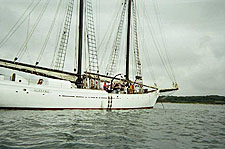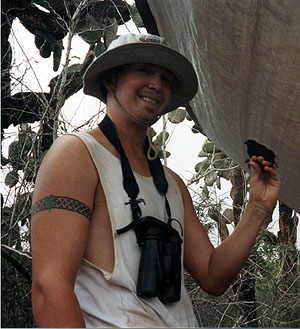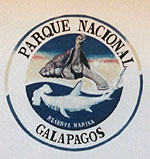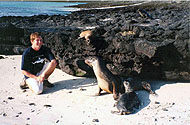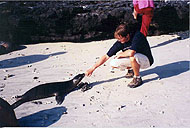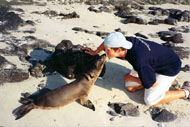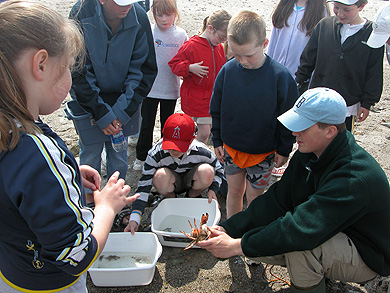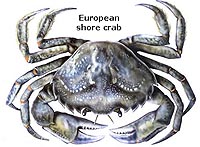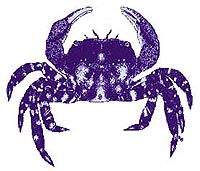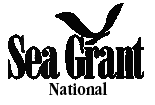
About Dave Delaney, the organizer of the NetworkI grew up in Duxbury, Marshfield, Norwood, and Quincy Massachusetts, USA. So I spent most of my summer days on the beach: searching the tidepools, scuba diving since the age of 12, or just lounging in the sand and sun. For high school, I went to Boston University Academy (and Boston University during junior and senior year). Then I moved to Canada to attended McGill University and obtained a B. Sc. in Water Environments and Ecosystems – Biological Focus from the School of the Environment.
|
After the two months of field work, I took a cruise around the archipelago, where I trained a Galapagos sea lion to give me a kiss. I always wanted to be a marine mammals trainer!!! Then I worked at a scuba diving shop, Scuba Iguana, on Santa Cruz. After this I went to the mainland of Ecuador and up the Andes and biked and camped into the Amazon rainforests near Columbia.
My other endeavors include working at the Massachusetts’ Department of Environmental Protection’s Rideshare Program implementing a regulation to decrease the amount of drive alones to work by creating car pool lists for the employees, installing bike racks, and subsidizing the cost of public transportation monthly passes for employees. Then for the Sierra Club of Canada, I constructed a predictive model that determined when and where it was safe for water-based activities on the Saint Lawrence River in Quebec, Canada. Also I have created groups to raise environmental awareness such as “Teach as you Learn” to school children in various grades at school around the island of Montreal and “warm WARMER”, a group to raise awareness of the enhanced greenhouse effect and our role! Now I have begun my PhD work in marine invasive species. I am trying to get a monitoring network up and running for many reasons. Researchers, managers, and environmental protection groups need this information but do not have the personnal or adequate funds. The public needs to learn more about this important but not well-known problem, so humans are the main drivers for the increased rate of invasive species. There is some structure already set such as the great database of New England Aquarium Massachusetts Coastal Management and MIT Sea Grant but this is passive. In Maine, Bowdoin and College of the Atlantic are holding teaching conferences to train teachers on how to bring invasion biology into the classroom even with the stringent and narrow-minded education standards. Governments of the US, Canada, Australia, New Zealand, South Africa, and others are finally come to the realization this problem is not only not going away but will get worse with time. So we must do something! My goal is to merge and build upon these great initiatives and bring the public into this area of research. The atmosphere is right for this new and monumental idea. It can only happen if everyone helps out! Science is not something only people with PhDs can do, anyone can do it, if it is important to you. You can do this, you can make a difference! Please join this citizen science initiative and help us learn and protect our environment! Thanks! Dave |
||||||||||||||||
|



